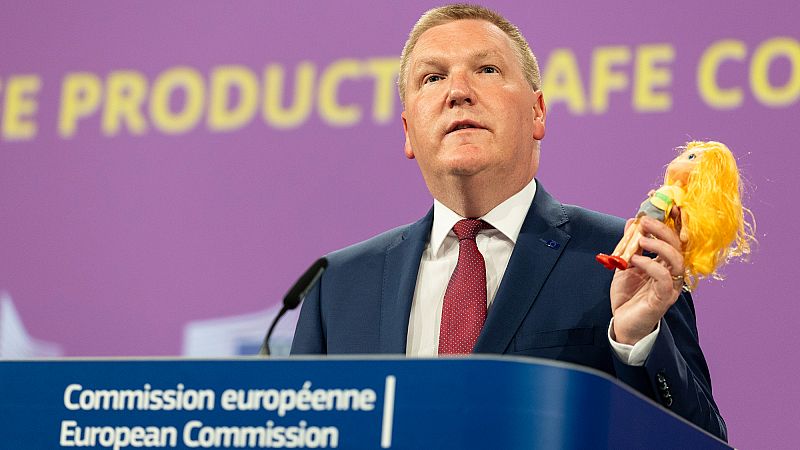
Toys and other Chinese products made up the largest part of 4,127 instances of dangerous non-food products alerted to the EU’s Safety Gate market tracker last year – the highest number of alerts since the rapid alert system was put in place in 2003, and double the figure seen just two years ago.
Cosmetics, at over a third of the total, remained the most frequently reported product class. A striking 97% of them contained the synthetic perfume butylphenyl methylpropional, known by the trade name Lilial, named for its floral fragrance.
The European Chemicals Agency lists the substance as damaging to fertility, liable to cause an allergic reaction on the skin, and it is being investigated as a potential endocrine disruptor. Its use has been banned in the EU since March 2022.
Toys accounted for 15% of alerts, and the report comes just days after EU lawmakers agreed the text of a new toy safety regulation, which will ban the use of harmful chemicals such as PFAS, endocrine disruptors and bisphenols in toys.
Under the incoming law, all toys will have a Digital Product Passport to prevent unsafe toys sold online and offline from entering the EU. Other categories of goods flagged by the alert system include electrical appliances (10% of incidences), motor vehicles (9%), and chemical products (6%).
The European consumer rights group BEUC suggested that the problem is not caused so much by a lack of legislation as a lack of enforcement, and the growing trend towards buying goods through websites and smartphone apps.
“Market surveillance authorities not only need more financial, technical and human resources but also stronger legal enforcement powers against online marketplaces to ensure consumers are protected from unsafe products,” BEUC director Agustín Reyna said.
With authorities unable to control every product entering the EU market the consumer organisation warned that official notifications to the alert system probably represent only the “tip of the iceberg”, and that it was impossible to know the number of products or units linked to a specific notification.
Stemming the tid
In addition to the incoming new toy safety standards, the EU adopted in December a General Product Safety Regulation. The Commission is working with national authorities to prepare for a first product safety “sweep” of websites to identify breaches of the rules.
With 40% of all notifications concerning imports from China – a whopping 61% if cosmetics are not included (they appear to be coming mainly from Italy) – the EU executive has been working with the manufacturing superpower since 2006 in an effort to ensure Chinese firms are aware of EU product standards.
In a joint action plan signed in 2023, the trading partners agreed to react within 21 days to any Safety Gate alerts, as well as holding regular workshops to discuss mutual enforcement challenges.
“We cannot let the products we use every day harm our health or the environment we live in,” said Michael McGrath, the EU commissioner responsible for consumer protection during a press conference where he brandished a plastic doll that had been found to contain toxic phthalates.







